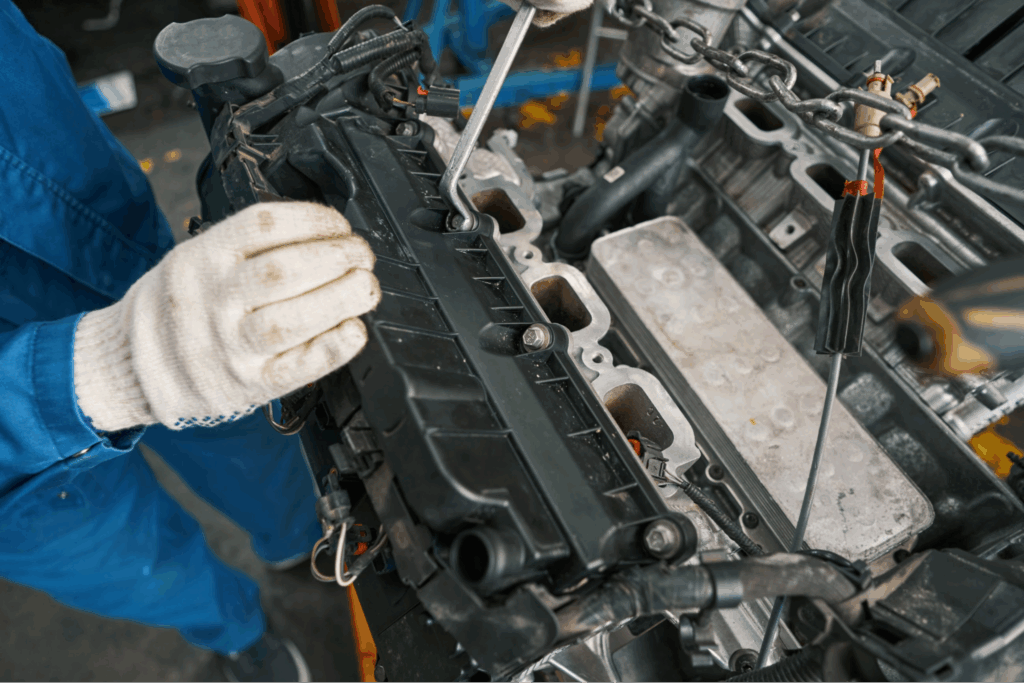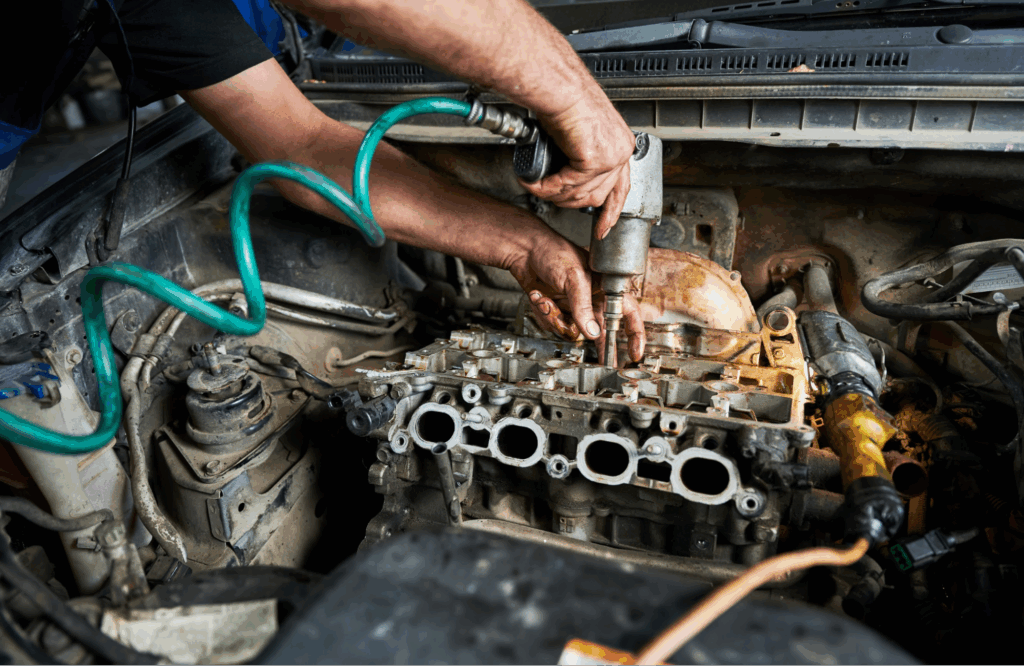Modern vehicles are built to be more efficient, reliable, and responsive, thanks to ongoing advancements in automotive technology. One component playing a pivotal role in achieving these standards is the fuel injection system. It’s the backbone of engine performance, ensuring fuel is delivered precisely and consistently. However, like any mechanical system, it requires regular attention and care. This is where fuel injection system maintenance comes in—a practice that not only sustains performance but also improves fuel efficiency and extends the lifespan of your vehicle. This comprehensive guide will dive into the inner workings of the fuel injection system, highlight signs of trouble, and explain why consistent maintenance is vital to keeping your engine running at its best.
Understanding The Fuel Injection System Maintenance Process
To understand why fuel injection system maintenance is so essential, it helps to know how the system works. The fuel injection system delivers the right amount of fuel to the engine at the correct time to ensure smooth performance and efficiency. It includes components like injectors, fuel pumps, filters, and sensors, which must function properly for the engine to run efficiently. Recognizing how these parts work together makes it easier to spot signs of trouble early and keep the system well-maintained.
What is a Fuel Injection System?
The fuel injection system delivers fuel into the combustion chamber of your engine. Unlike older carburetor systems, fuel injection relies on high-precision components and electronic control units (ECUs) to regulate the timing and amount of fuel being sprayed. This system ensures the ideal air-fuel mixture, optimizing combustion and promoting efficiency.
Key Components of a Fuel Injection System
Several essential components work together to form the fuel injection system. Fuel injectors act as precise nozzles, spraying fuel directly into the engine’s cylinders. The pump delivers this fuel from the tank to the injectors at the necessary pressure. A fuel filter ensures that contaminants are removed before the fuel reaches the injectors, helping to protect the entire system. The electronic control unit (ECU) oversees the process by managing the fuel injection’s timing, duration, and pressure using data from various sensors. These sensors monitor engine conditions like air intake, throttle position, engine temperature, and oxygen levels to maintain the ideal fuel-air mixture for efficient combustion.
The Importance of Fuel Injection System Maintenance
Fuel injection system maintenance is crucial for running your engine smoothly and efficiently. As the primary method for delivering fuel to your engine, this system directly impacts performance, fuel economy, and emissions. Without regular upkeep, even minor issues in the system can lead to bigger problems that affect your vehicle’s overall reliability.
Preserving Fuel Efficiency
One of the most significant benefits of fuel injection system maintenance is improved fuel economy. Over time, injectors can become clogged with carbon deposits or debris, disrupting the spray pattern and leading to inefficient combustion. By cleaning or replacing dirty injectors, the system can once again deliver the correct amount of fuel, improving miles per gallon and saving you money at the pump.
Enhancing Engine Performance
When the fuel injection system functions as it should, your vehicle responds faster and delivers smoother acceleration. Dirty or failing injectors can cause hesitation, rough idling, or power loss. Proper maintenance ensures that your car runs like it should, with the right balance of power and efficiency.
Preventing Expensive Repairs
Neglecting fuel injection system maintenance can result in severe engine damage. If fuel injectors stick open or closed or the fuel filter becomes clogged, it could lead to issues such as misfiring, overheating, or even engine failure. Preventive maintenance is far cheaper than major repairs or replacements down the road.
Reducing Harmful Emissions
When the fuel-air mixture is optimized correctly, it leads to more complete combustion, which helps reduce harmful emissions like carbon monoxide and hydrocarbons. A clean fuel injection system allows your vehicle to remain environmentally friendly and compliant with emissions regulations.
Extending Engine Longevity
When your engine receives clean, properly metered fuel, it experiences less strain and wear. Over time, this adds up to a longer lifespan for your engine and fewer unplanned breakdowns.
Common Problems That Fuel Injection System Maintenance Can Prevent
Neglecting fuel injection system maintenance can lead to various performance and efficiency issues. Over time, components within the system can become clogged, worn, or malfunction due to dirt, carbon buildup, or general wear and tear. Regular maintenance helps prevent these common problems before they escalate into costly repairs or engine damage.
Clogged Fuel Injectors
Fuel injectors are susceptible to carbon buildup, especially if you frequently drive short distances or use low-quality gasoline. Clogged injectors disrupt fuel spray patterns, reducing combustion efficiency.
Dirty Fuel Filter
A fuel filter traps dirt and rust particles, preventing them from entering the fuel system. If the filter is clogged, it restricts fuel flow, causing sluggish performance and stalling.
Faulty Sensors or ECU
Sensors that provide inaccurate data can lead to poor fuel-air mixtures. Routine diagnostics for fuel injection system maintenance can catch these issues early.
Leaking Injectors
Worn or damaged injectors can leak fuel, which is wasteful and dangerous. Leaks increase fire risk and cause erratic engine behavior.

Fuel Injection System Maintenance Schedule
While maintenance needs can vary based on your vehicle and driving habits, a general timeline for fuel injection system upkeep is recommended. Every 3,000 to 5,000 miles, it’s beneficial to add a fuel injector cleaner when refueling to keep the injectors in good condition. Replacing the fuel filter between 20,000 and 40,000 miles ensures clean fuel flow and prevents clogging. For more thorough cleaning, professional fuel injector cleaning should be done every 50,000 to 100,000 miles to remove buildup and maintain optimal performance. It’s a good idea to perform a comprehensive diagnostic and inspection of the entire fuel injection system annually or bi-annually. Always consult your owner’s manual for specific maintenance recommendations tailored to your vehicle’s make and model.
DIY vs. Professional Maintenance for Fuel Injection Systems
When it comes to fuel injection system maintenance, knowing when to handle tasks yourself and when to seek professional help is essential. Some basic maintenance tasks are simple enough for vehicle owners to manage independently, while others require specialized tools and expertise. Understanding the difference can ensure your vehicle remains in top condition without risking unnecessary damage or costly repairs.
When to DIY
Vehicle owners can handle several maintenance tasks to keep the fuel injection system in good working order. Adding fuel injector cleaner to the gas tank is a simple step that can help prevent carbon buildup and maintain injector efficiency. Monitoring fuel efficiency and overall performance allows you to notice any declines in performance early, helping you address potential issues. On some models, replacing the fuel filter is a straightforward task that ensures uninterrupted fuel flow to the injectors. Additionally, regularly checking for warning lights or unusual noises can alert you to problems with the fuel system before they escalate into more significant issues.
When to Call a Professional
Certain aspects of fuel injection system maintenance are best left to professionals due to the tasks’ complexity. Professional injector cleaning uses advanced methods to thoroughly remove carbon buildup and ensure the injectors function at peak performance. Diagnosing complex issues with sensors or the ECU requires specialized knowledge and diagnostic equipment to pinpoint problems accurately. Replacing critical components such as injectors, fuel pumps, or pressurized system parts is a delicate process that requires technical expertise. Finally, professionals use specialized tools to inspect and test the entire system, ensuring that all components function as they should for optimal engine performance.

The Role of Technology in Modern Fuel Injection Maintenance
As vehicle technology advances, fuel injection systems have become more complex and efficient. Direct injection, turbocharging, and variable valve timing require more precise fuel delivery, making maintenance even more critical. Modern diagnostic tools can read error codes, monitor fuel trim data, and test injector pulse widths. Some newer vehicles even alert drivers to potential injector issues before they become serious, thanks to real-time sensors and integrated vehicle health monitoring systems.
Signs Your Fuel Injection System Needs Maintenance
Being proactive about fuel injection system maintenance is key to preventing significant issues. Several signs indicate that your system may need attention, including engine misfires or hesitation, which can disrupt smooth driving. Rough idling or stalling often points to fuel delivery problems, while reduced fuel efficiency and poor acceleration suggest that the fuel injectors may not be functioning correctly. If the Check Engine light turns on, it’s a clear sign that something in the fuel system needs inspection. Black smoke from the exhaust or unusual fuel odors can also indicate incomplete combustion or a malfunctioning fuel injection system. If you notice any of these issues, it’s essential to check your fuel injection system before the problem worsens.
Fuel Injection System Maintenance as a Smart Investment for Your Vehicle
Maintaining your vehicle’s fuel injection system is not just about keeping it running—it’s about ensuring it runs efficiently, economically, and cleanly for as long as possible. Regular Fuel Injection System Maintenance will help you avoid costly repairs, extend your engine’s lifespan, reduce emissions, and deliver the performance you expect from your car. If you’re a weekend driver or someone who relies on your vehicle daily, keeping your fuel injection system in top shape is one of the smartest automotive decisions you can make. With a mix of at-home upkeep and professional service, you’ll give your engine the care it needs to thrive for years.
For more information about fuel injection system maintenance, visit our Dark Night Specialties blog.

